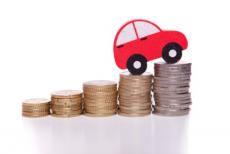
The cost of running a car has risen by 14% in the last year and the average motorist now pays £128.64 a week, according to research from the RAC.
This increase is nearly three times the current rate of inflation (CPI), which currently stands at 5%.
According to the latest RAC Cost of Motoring Index, motorists now pay £6,689 a year for their car - the equivalent to 55.74p per mile.
This is a staggering £1,556 more a year compare to four years ago.
The reasons why
Depreciation is the biggest factor behind the increase, rising by 16.67% in the last year.
The next highest cost was car insurance, which has shot up by 14.38%, while the cost of petrol has added 12.4% onto motorists' yearly bill.
Adrian Tink, RAC motoring strategist, says: "With the annual cost of motoring approaching £7,000 the price burden of car ownership is hitting drivers hard.
"Oil companies need to be more transparent over pricing so that drivers know exactly where their hard-earned money is going. The Cost of Motoring Index makes it quite clear that motorists are already paying way over the odds."
The research was based on a pool of 17 new cars with the results weighted by their level of ownership, looking at a number of costs including depreciation, finance, service, maintenance, repair fuel, insurance, road tax and breakdown cover.
An increase in the general level of prices that persists over a period of time. The inflation rate is a measure of the average change over a period, usually 12 months. If inflation is up 4%, this means the price of products and services is 4% higher than a year earlier, requiring we spend and extra 4% to buy the same things we bought 12 months ago and that any savings and investments must generate 4% (after any taxes) to keep pace with inflation. Since 2003, the Bank of England has used the consumer prices index (CPI) as its official measure of inflation (see also retail prices index).
The Consumer Price Index is the official measure of inflation adopted by the government to set its target. When commentators refer to changes in inflation, they’re actually referring to the CPI. In the June 2010 Budget, Chancellor announced the government’s intention to also use the CPI for the price indexation of benefits, tax credits and public sector pensions from April 2011. (See also Retail Prices Index).